Countries
- Global
- Bangladesh
- Indonesia
- Mozambique
- Pakistan
- Tanzania
GAIN works to shape food systems that better protect and cater to the needs of children and young people as they evolve and grow by innovating and scaling a range of age specific solutions.
GAIN emphasises involving various stakeholders, including children, young people and their communities, in decision-making processes throughout the project cycle, creating solutions that are more sustainable, relevant, and effective for their specific needs.
GAIN began working on adolescent nutrition in 2017 and has expanded its work to take a broader food systems approach. Our programming is adapted according to children and young people’s ages and Interests, and interaction with the food system and is themed around three areas:
GAIN uses activity-based nutrition and food education to support families with infants and young children and adolescents (age 10-19 years) to learn more about food and make healthier food choices.
GAIN's Youth Leadership Programme strives to create a common space for young people (aged 18-24) to learn, collaborate and act to create healthier, just, and more sustainable nutritious food systems through youth-led campaigns.
GAIN supports SMEs to increase their capacity to safely produce and sell nutritious foods for children, and young people to develop entrepreneurship and employment skills.
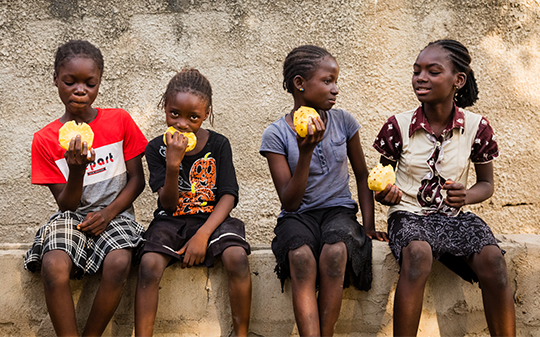
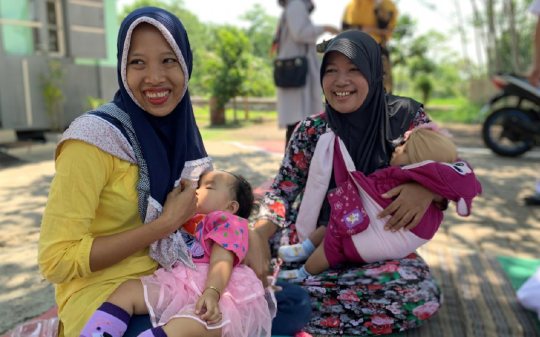
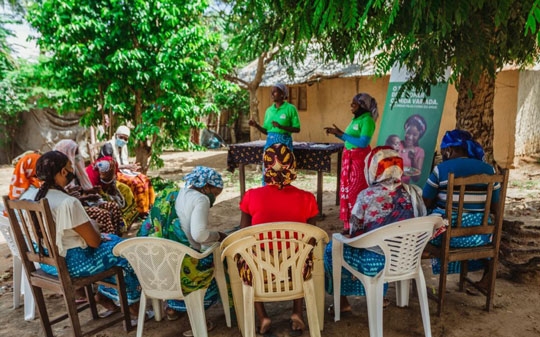



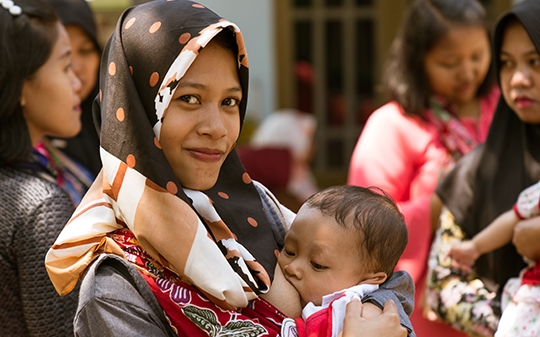
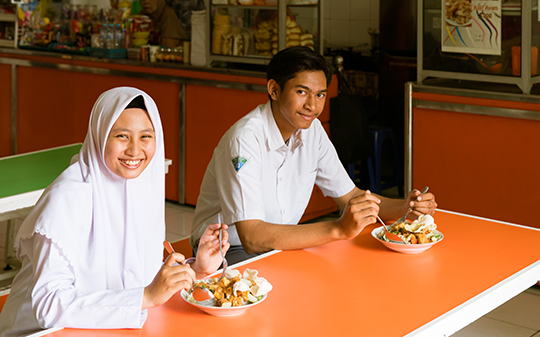
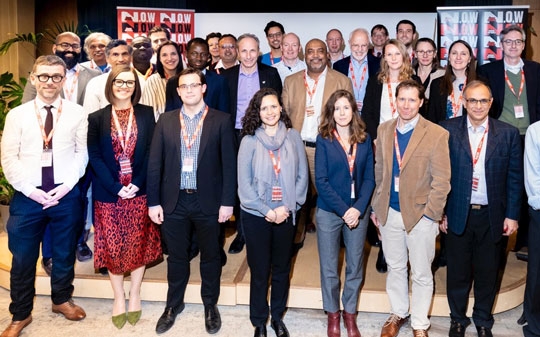
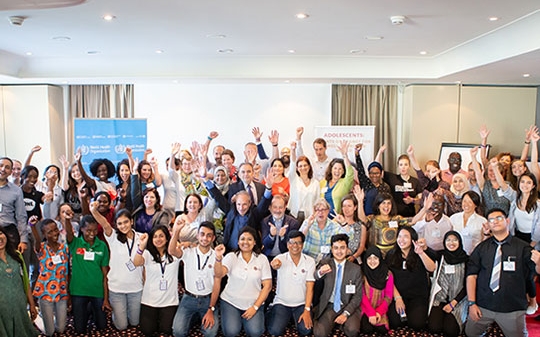


Programme Lead, Children and Young People
Food Systems need to be intentionally governed for sustainable transformation (Herens et al., 2022). A 'whole of society' approach guided by good governance principles, evidence, best practices and the promotion of agency is essential for accelerated, locally owned, contextual, coherent and sustained food systems transformation (Trevenen-Jones et al., in publication, 2024).
Food systems transformation requires multiple food systems actors - across levels of government, sectors, and communities - are heard and participate as change agents. This enables the necessary conditions in which livelihoods and access to a diversity of safe and nutritious foods for all can be advanced.
In an increasingly urban world, cities with their mandates and governance tools are active sites of food systems transformation. City government administrations and the multiple actors that routinely engage with food systems have the capacity to pull and push change, influence national and global agenda, and implement context specific food system and nutrition policies and pathways alongside localised sustainable development goals.
Beyond city boundaries, the surrounding peri-urban areas, along with their connections to secondary cities, both formal and informal food sectors, infrastructure, rural communities, and broader regions, are acknowledged as cornerstones for rapid, significant, and sustainable transformations in food systems. (HLPE-CFS., V0 UPU report in review, 2024). This space for change has the potential for multiple co-benefits including access to affordable and healthy diets, biodiverse ecosystems, climate change, land and freshwater use (FAO et al., 2023; Rockstrom et al., 2023).
GAIN works together with multiple local, national and global actors to re-shape food systems with attention to context, inclusion, equitability, innovation and scaling. Design thinking and 'whole of society' participation are key principles with particular emphasis on evidence, local agency, gender transformation and engagement of those most vulnerable to malnutrition e.g. low income communities and those who live, lead and shop in informal (traditional) food markets.
Examples of our work and resources: Food Action Cities platform; Markets and Local Government Policy Option Toolkits; Transforming Urban and Rural Food Systems (TURFS); Nourishing Food Pathways (workstream 2. governance, markets and women).
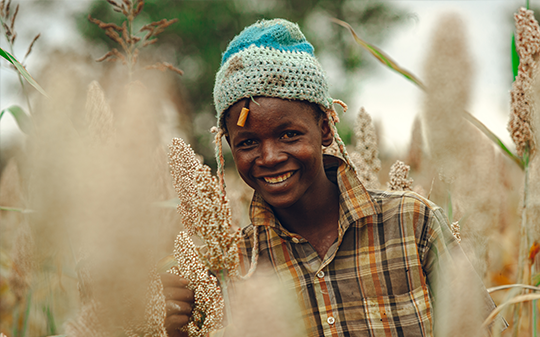
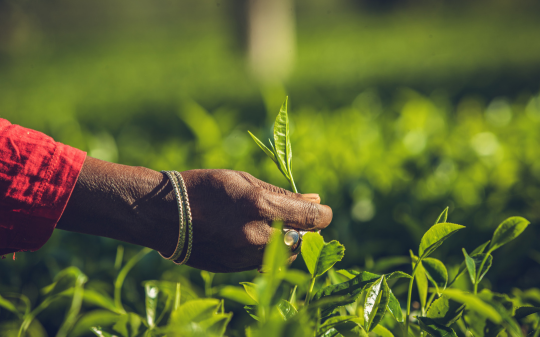
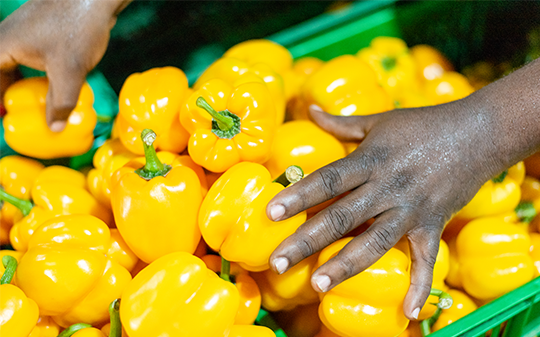

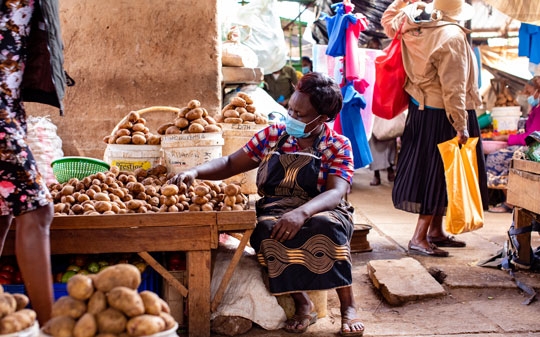

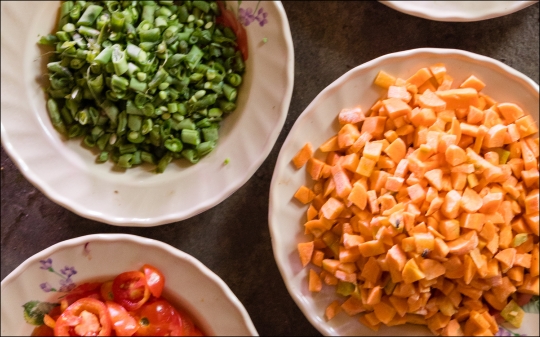
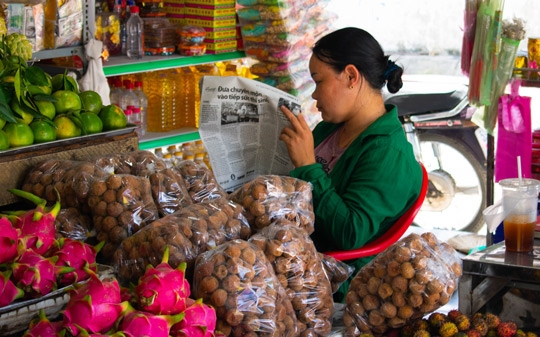

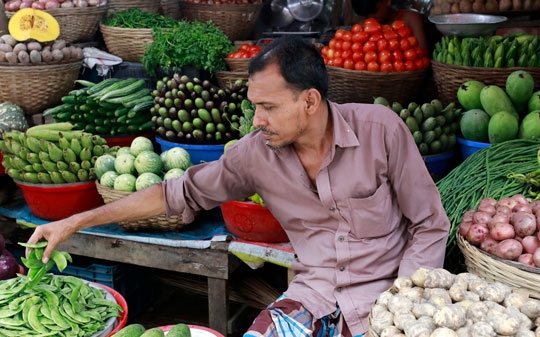
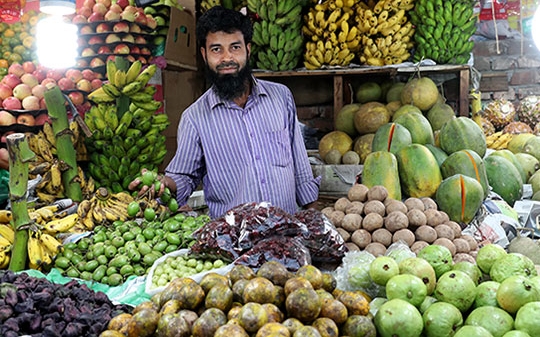
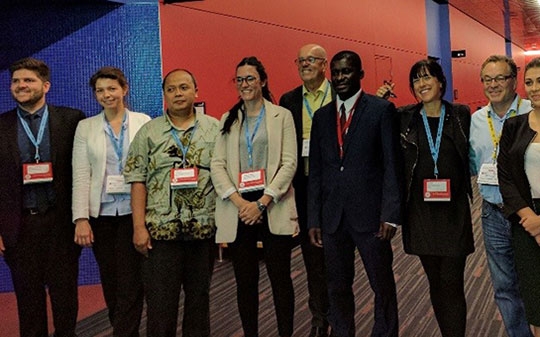


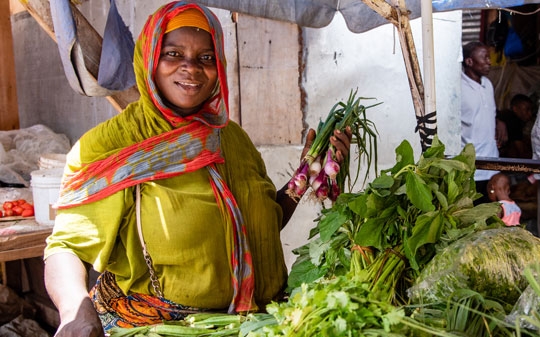
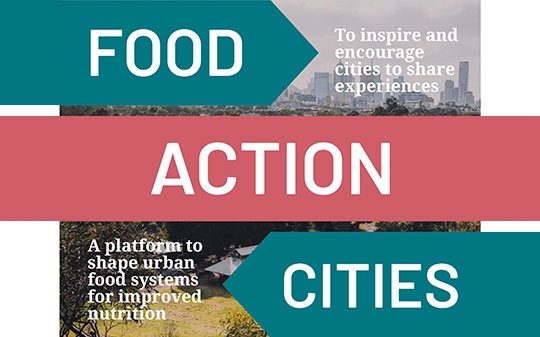

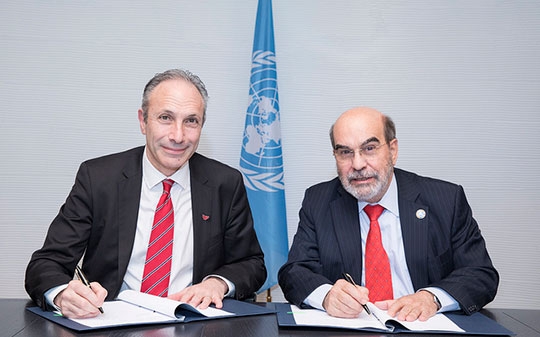

Programme Lead, Food Systems Governance Programme
CASCADE(CAtalyzing Strengthened policy aCtion for heAlthy Diets and resiliencE)' is a multi-country project implemented by a consortium led by CARE with GAIN, both organisations with long-standing experience in addressing malnutrition at the community and household levels and advocating for greater government engagement for sustainable food systems.
CASCADE leverages CARE’s and GAIN's experience and expertise in systems strengthening and food systems transformation to achieve its main objectives:
The five-year, 60 million EUR award from the Dutch Ministry of Foreign Affairs is implemented between 2022-2026. CASCADE engages in collaborative efforts with government bodies, private service providers, and communities around five domains
CASCADE employs multiple advocacy strategies, from sub-national to national and global level, to strengthen policy implementation of nutrition related policies. It draws on CARE’s and GAIN’s approaches, focusing on social accountability, good governance, health system’s strengthening, multisectoral coordination, resource mobilisation, private sector engagement and climate-resilient agricultural practices.
It also strengthens community structures through community mobilisation and civil society engagement for collective pressure for changes in the food system and collaborates with the Scaling Up Nutrition (SUN) networks across the six countries to address malnutrition. Gender, social norm transformation and behaviour change are cross cutting strategies, both an essential goal and a means to magnify impact.
Food systems are a foundation of human and planetary well-being and central to achieving the Sustainable Development Goals. Yet they also contribute to ill health, inequity, environmental degradation, and greenhouse gas emissions. These challenges demand urgent food systems transformation. Such a transformation requires understanding the status of food systems across their diverse functions.
The Food Systems Countdown Initiative (“the Countdown”) aims to enable this understanding by monitoring the state of food systems transformation through relevant data. The Countdown is an interdisciplinary collaboration of scientists that emerged from the 2021 United Nations Food Systems Summit. It seeks to provide food system actors and stakeholders (e.g., civil society, governments, and international organisations) with actionable evidence to make decisions that can bring about food system transformation.
Over a two-year process, the Countdown collaborators developed a framework to monitor food systems across five themes: (1) diets, nutrition, and health; (2) environment, natural resources, and production; (3) livelihoods, poverty, and equity; (4) governance; and (5) resilience. The Countdown then used a rigorous, multistakeholder process to arrive at indicators to monitor change across these five themes. The first annual Countdown paper and report, showcasing these indicators, were released in December 2023. They depict the current state of national food systems, providing a baseline that can be used to guide priorities for investment, research, and policymaking and assess future progress.
The baseline data provide a starting point for global monitoring of food systems and serve as inputs for considering what changes in indicator values are achievable, along which time frames.
The five Countdown themes map closely to the national food system transformation pathways from the UNFSS process, so they can facilitate harmonized monitoring of these pathways across countries, supporting priority setting and tracking of UNFSS commitments.
While this indicator framework is intended for global monitoring of food systems transformation, it offers a menu of indicators relevant to the design of policies and actions at the country level. It can thus be used as a point of reference for developing national monitoring systems adapted to country needs.
Going forward, the Countdown will provide annual analysis to inform priorities and actions in the policy sphere, for the private sector, and for the development community. In this way, it supports the transformation of food systems, so they become equitable, sustainable, and resilient and positively contribute to achieving the 2030 SDGs and other global goals.
TODO

Senior Technical Specialist
The Food Systems Dashboard (FSD) is the first tool that brings together country-level and subnational data across all components of food systems and provides deeper analysis and guidance on how to use this data in meaningful ways.
The FSD is organized around three main pillars: Describe, Diagnose, and Decide
The FSD brings together extant data for around 300 indicators to give users a complete view of food systems, including their drivers, components, and outcomes. These indicators come from over 40 sources, both public and private, including United Nations agencies, the World Bank, the Consultative Group for International Agriculture Research (CGIAR), Euromonitor International, and cross-country project-based datasets. The FSD is continually being updated to include new indicators, growing from around 140 indicators when first launched in 2020 to around 300 today.
On the Country Profiles, a country’s performance is assessed for 39 diagnostic indicators that span food supply chains, food environments, nutrition and health outcomes, and environmental outcomes. For each indicator, countries are considered to be in the green, yellow (indicating a potential challenge area), or red (indicating a likely challenge area).
The FSD includes 87 polices and actions aimed at improving diets, nutrition, and environmental sustainability. Stakeholders can explore and prioritise these actions based on the needs of their food systems.
challenges, and decide on actions at the national level, having subnational data is key for decision making and food systems transformation. To meet this need, the FSD is working closely with partners to create Country Dashboards, which enable viewing data across subnational regions within a country—like states or districts—and provide similar visualisations and diagnostics as the Global FSD. The first Country Dashboards are being created in Bangladesh, Indonesia, Kenya, Nigeria, Mozambique, and Pakistan, covering almost one billion people.
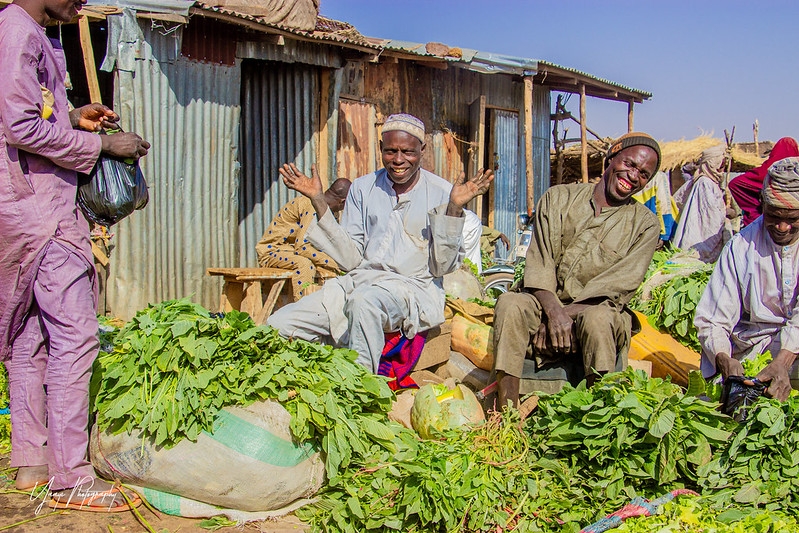
All of the FSD’s resources (publications and reports, webinars and interviews, testimonial videos, etc) can be found on the FSD Resources Page.
We would like to thank the following organizations that have provided support

Research Advisor - Knowledge Leadership

Program Manager, Food Systems Dashboard
The Global Diet Quality Project aims to establish the architecture and data necessary for monitoring diet quality on a global scale.
The project has developed a reliable and feasible method for data collection, along with a suite of diet quality indicators that encompass both nutrient adequacy and the prevention of non-communicable diseases (NCDs). As of 2024, it has adapted and translated its 5-minute questionnaire, the Diet Quality Questionnaire (DQQ), for use in over 120 countries and has collected nationally representative data in 85 countries across all continents, representing 85% of the global population. The Global Diet Quality Project is a partnership between Gallup, Harvard University, and GAIN.
This project aims to collect dietary quality data in the general adult population across countries worldwide, and to provide the tools for valid and feasible diet quality monitoring within countries. The project enables the collection of consistent, comparable dietary data across countries for the first time.
All data are collected in the Gallup World Poll. The DQQ was administered in national probability-based samples of civilian, non-institutionalized individuals of any gender, aged 15 and older. Data collection occurred either using face-to-face or telephone surveys. Country-specific details of data collection can be found here. The Gallup World Poll is the only survey in the world that covers more than 98% of the world's adult population through annual, nationally representative surveys with comparable metrics across countries.

Head of Office of GAIN Geneva
I‑CAN aims to catalyse climate action for nutrition benefits, and nutrition action for climate benefits
I-CAN was launched in 2022 during COP27 by the Presidency of Egypt, and is co-chaired by Egypt and GAIN, with core partners including WHO, FAO and the SUN movement. I-CAN gained significant attention in 2023, being featured at various high-level international events and mentioned by the Director-Generals of both WHO and FAO during COP28 in Dubai. In 2024, I-CAN will focus on providing national-level support to country governments.
Please click here to read the key findings and full pdf of the I-CAN 2023 baseline report, which highlights the current state of integration between climate change and nutrition across a range of indicators, including in action, data and evidence, policies, and investments.
The Executive Summary of the I-CAN baseline report is available also in French, Spanish and Arabic.

Lead, Environment and Nutrition

Executive Director’s Office Analyst
All foods are not created equally—some have exceptionally high levels of one or more nutrients that are important to human health, and, if consumed in greater quantities, could contribute significantly to improving dietary quality among population groups most vulnerable to malnutrition. Under this programme of work, GAIN has set out to: identify high-potential foods in the countries where we work; to understand the cultural and economic constraints to higher consumption, and to design and implement integrated solutions that will result in higher consumption. Some of this work includes crop and plant varieties unique to particular settings that are no longer commonly consumed, despite their nutritional value.
A number of foods are particularly rich in the nutrients that are commonly lacking in resource-poor populations such as iron, zinc, folate, vitamin A, calcium, and vitamin B12. Priority foods for improving dietary quality have been identified by GAIN researchers Ty Beal and Flaminia Ortenzi. When examples of these priority foods are also accessibly priced and can be produced in an environmentally sustainable manner, they become prime candidates for efforts to increase access and consumption by vulnerable groups.
Numerous barriers have been identified that prevent consumers from accessing these foods; they occur at all stages of the supply chain from production inputs right through to household behaviours. GAIN’s approach to analysing supply chain blockages is described here. More recently, we have used systems dynamics modelling to understand the potential of different intervention strategies. We also always use qualitative research methods to understand consumer motivation and behaviour.
Building on these insights, in 2022, GAIN began to implement a new generation of large projects targeting priority food value chains. Each project works on all of supply, demand, and the enabling environment and builds on existing investments to strengthen the relevant value chains. All of these projects will be assessed on their ability to change consumption frequency and quantity among low-income consumers, and the largest projects under this programme aim to improve the diets of over one million consumers.
Currently, we are working on: vegetables in Kenya, Benin and Uganda; milk and other dairy products in Ethiopia, and animal-source foods (eggs, poultry, and small dried fish) in Mozambique.

Director of Programme Services
GAIN’s overall vision is to scale up production and availability nutrient enriched crops and reach 120m consumers in Africa and Asia by 2027.
Since 2019, GAIN has been supporting the scaling up of nutrient-enriched crops, also known as biofortified crops, in Africa and Asia to improve the intakes of micronutrients or nutrients necessary for healthy growth and development. These micronutrient rich crops are developed through conventional breeding techniques (they are not genetically modified) to increase their density of iron, zinc, or vitamin A – all critical micronutrients for maintaining good health. They are also bred with other traits for improved productivity and resilience as demanded by farming communities such as high yield, drought tolerance, and resistance to disease and pests. GAIN currently supports the scaling up of a variety of nutrient enriched crops including iron enriched beans, zinc enriched rice and wheat and vitamin A enriched maize, cassava and sweet potatoes.
Our work in nutrient enriched crops involves a wide range of stakeholders across the agricultural value chains such as governments and policy makers, agricultural research institutes, seed producers, farm inputs agro-dealers, farmers, agricultural extension workers, aggregators, food processors and other market actors involved in procurement and marketing of nutrient enriched crops and foods such as wholesalers and retailers as well as institutional buyers such as school feeding programmes.
Seed systems: partnering with research institutes and seed companies on scaling up nutrient enriched seed production and agro-dealers on availability and accessibility of the seeds to farmers.
Scaling up nutrient enriched crops production - working through farmers groups or farmer mobilization organizations and extension workers to scale up production of nutrient enriched crops.
Demand creation and markets – working with both farmers on uptake of nutrient enriched crops as well as consumers and institutional buyers on benefits of nutrient enriched foods to create demand. The work also involves connecting farmers to markets and supporting aggregation models for nutrient enriched crops. In addition, we also support food processors on product and market development for nutrient enriched foods.
Enabling environment – partnering with governments on policies, standards and regulations to support uptake of nutrient enriched crops and integration of these crops and foods in government procurement, social safety net programmes and other institutional programmes such as school feeding.
Sustainability – promoting production of nutrient enriched crops as a climate adaptation intervention in light of the fact that CO2 emissions are leading to reductions in the micronutrient content of crops. In addition, we also work with farmers on good agronomic practices and climate smart agricultural practices in partnership with agricultural extension workers.
Livelihoods and inclusion: GAIN and its partners support capacity building of smallholder farmers and agri-food entrepreneurs, with a special emphasis on women and youth, along nutrient enriched crops supply chains by equipping them with entrepreneurial skills, providing business support services such as aggregation, market linkages, product development and processing as well as improving access to finance for those running nutrient enriched crops enterprises.
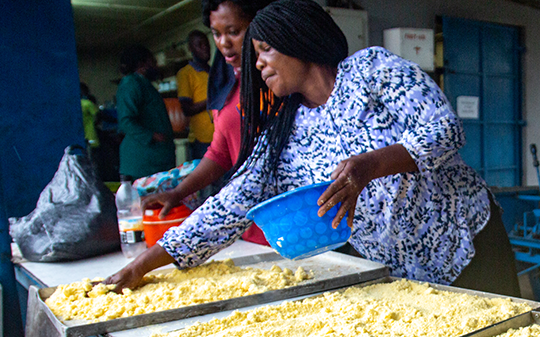
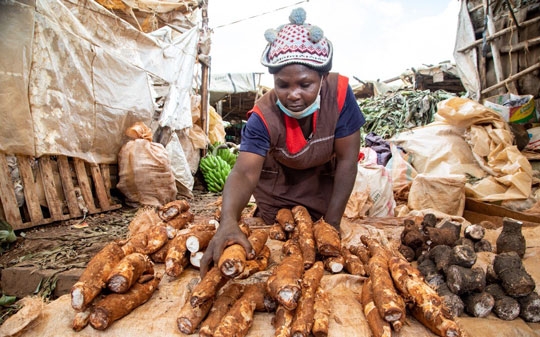
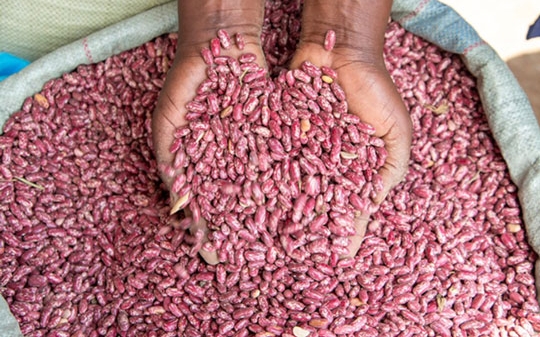
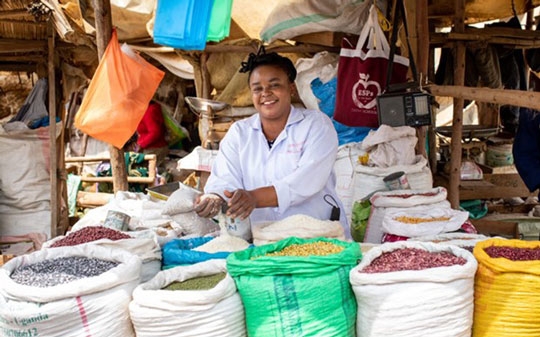
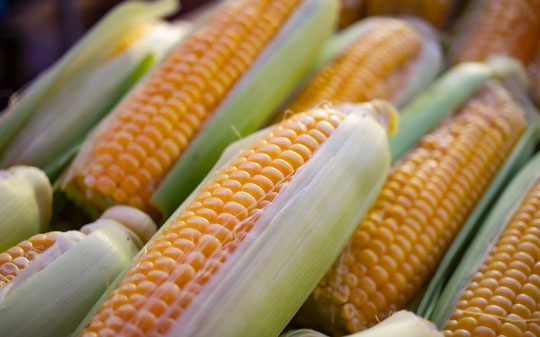
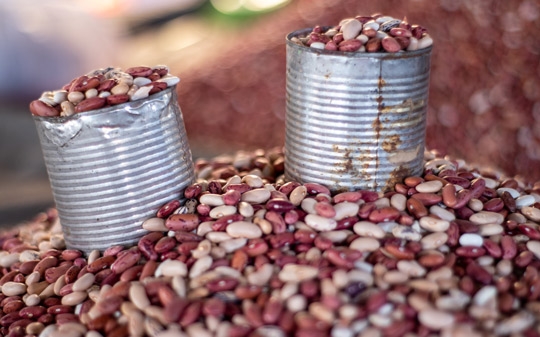

Programme Lead, Nutrient Enriched Crops
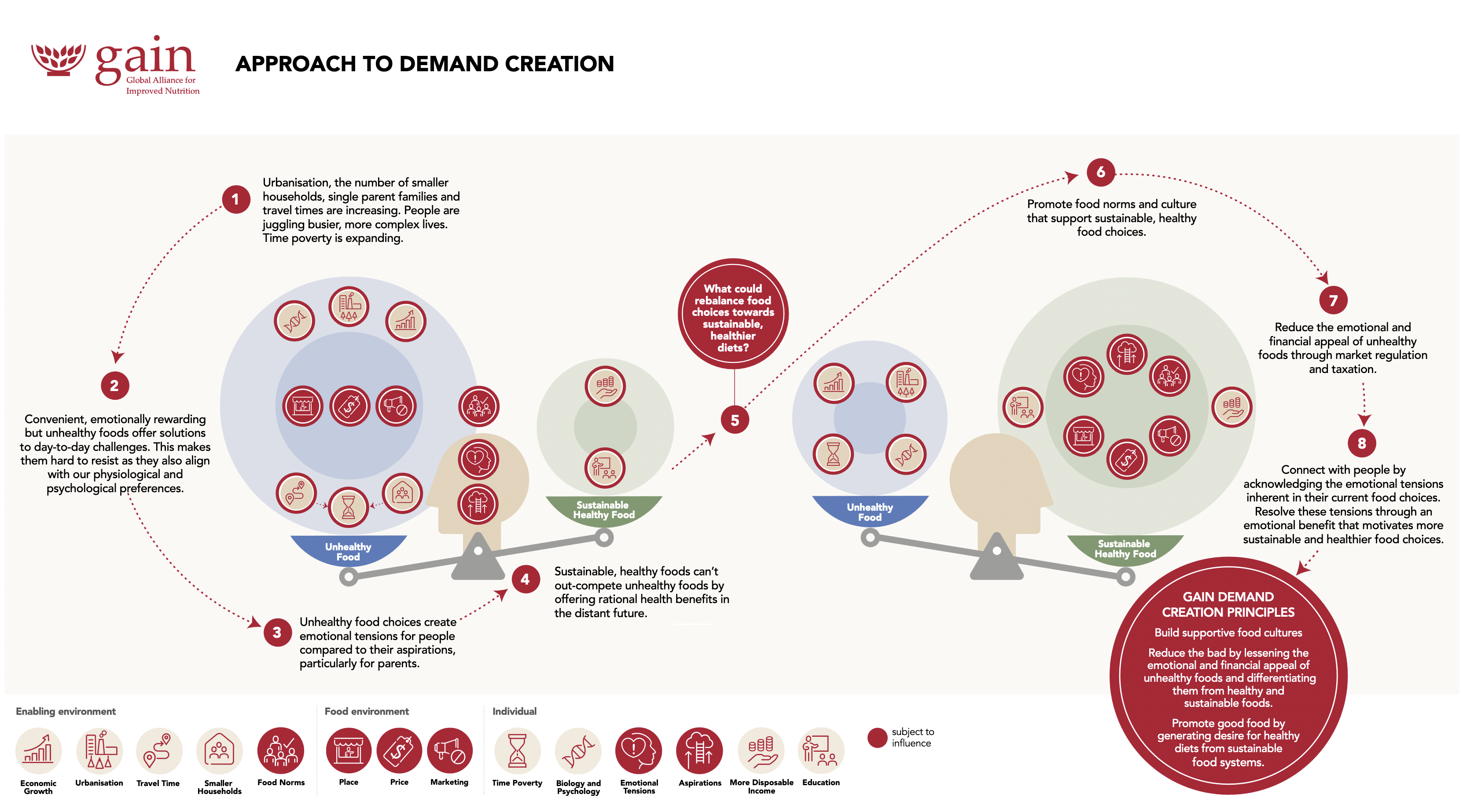
On the horizon is a new project to determine how we can create demand among rural households who are both producers and consumers of food.
Learn more here about the science and theories that have informed our overall approach.
To learn more about labelling that helps consumer make better choices read our discussion paper and convening paper.

Programme Lead, Consumer Demand Generation